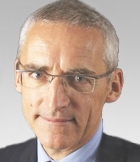Archives
ICEF 1st Annual Meeting
Summary
There were discussions about the appropriateness of public subsidy for deployment of new technologies. Panel members analyzed the tendency of rent seeking behavior and the possibility of locking in immature technologies in the wind power sector of the European countries with feed-in-tariff system. It was recommended that deployment subsidies be subject to a sun-set rule in order to discourage rent seeking behavior. It was reported that fossil fuel subsidy has imposed huge burden on government budget and that political will is now strong enough to address this problem.
It was observed that the recent electricity price hike in Europe was brought not only by deployment subsidy but also by economic crisis and politics related to nuclear and natural gas. The lessons from this experience were that governments need to be flexible and adaptable to changes in the energy markets circumstances to deal with interactions of these various factors.
There were discussions on appropriate role for government intervention. It was indicated that the Implementing Agreement by IEA is one example of public role that satisfies both efficiency and effectiveness because it involves both those who are engaged in basic research and those who are from business. Government intervention may be necessary in the context of relationship between technology and society. It was suggested that a “window of opportunity” would be open for such intervention when there is gap between social needs and technology. Also, observations were presented that governmental intervention influences the dynamics of competitiveness. The cases of biofuel sector in certain countries were referred as examples of effective governmental intervention that gave competitiveness to their industry. The governmental subsidy is also justified for people in the least developed region for the very first energy supply giving those people drastic changes in life. The importance of scientific knowledge and education was emphasized across the board because the role of public sector support for RDD&D is inseparable from its support of development of scientific knowledge and education. It was agreed that the climate change problem is one particular challenge that education will lead to informed decision making by the public.
Chair
Hoesung Lee
Professor at Korea University Graduate School of Energy and Environment
Member of the Board of Directors of the Korean Academy of Environmental Sciences
Senior adviser to Korean Society for Climate Change Research and the Korea Resources Economics Association
Member of the Asian Development Bank President's Advisory Board on Climate Change and Sustainable Development
Vice Chair of the IPCC(Inter governmental Panel on Climate Change)
Speakers






